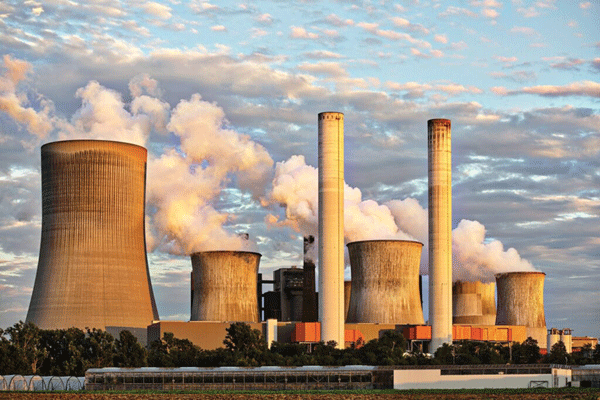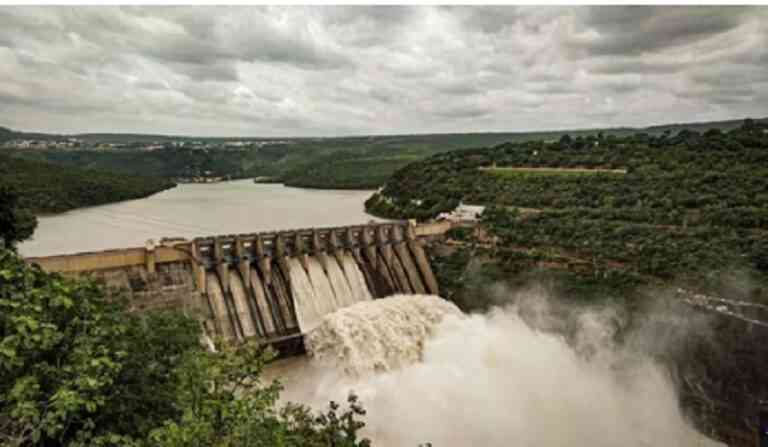
By Albert Chavhunduka RECENT media reports have said Zimbabwe’s biggest mining and energy company RioZim Ltd is on the hunt for alternative financiers or switching to a gas-powered plant after China’s decision to halt fundilng for coal-fired power plants overseas to protect the global environment.
The company had looked forward to attracting capital from China, but now it says it is looking for alternative financing plans and considering transforming the project to a gas-powered plant if feasibility studies are carried out.
China has been a top funder of coal power projects around the world, particularly in developing countries, but in September last year, the Asian giant proclaimed its plans to stop funding the construction of new coal projects overseas, as part of efforts to nip in the bud future carbon emissions.
China’s Gezhouba Group Corp, in partnership with Rio Energy, was behind the development as well as fundraising for the US$3 billion Sengwa coal plant, which was expected to produce up to 1 400 megawatts of electricity, a development which would have gone a long way in solving the country’s energy problems.
Some cynics have begun speculating that the move by China is leaving Africa – which is energy deficient — in a lurch.
China’s decision should not be construed or interpreted to mean that China is “dumping” Zimbabwe or Africa per se, but rather, it is evidence of China’s effort and commitment to fight against climate change and the future of the world. Looked at from another angle, it is also a huge opportunity for developing countries to reimagine their energy policies and embrace new policies and technologies in line with global trends.
There is a silver lining on the smoke-filled cloud of hydrocarbons!
It is pertinent to realise that the China-Rio Energy scenario is not a case of China abandoning Africa, but rather, China’s commitment to a better environment for a “beautiful and green future for the world” as stated by Chinese President Xi Jinping.
- Chamisa under fire over US$120K donation
- Mavhunga puts DeMbare into Chibuku quarterfinals
- Pension funds bet on Cabora Bassa oilfields
- Councils defy govt fire tender directive
Keep Reading
China has retained a firm stance on its commitment to cut emissions to net zero and through decisive steps, is on course to increase its climate goal and peak carbon dioxide emissions by 2060 and achieve carbon neutrality by 2030 in line with the Paris climate agreement.
At the United Nations Climate Change Conference (COP26) in 2021, President Xi Jinping articulated China’s position to adopt more vigorous policies and measures to deal with climate change and called for the building of a “Green Great Wall” back home.
Xi said China would increase its support to developing countries to develop cleaner forms of energy, instead of encouraging the further construction of coal-powered power plants which have vastly contributed to climate change.
Xi proposed the need to improve global environment governance, actively respond to climate change and create a community of life for man and nature as well as the need to accelerate transition to a green and low carbon economy and achieve green recovery and development.
He said China would strive to peak carbon dioxide emissions before 2030 and achieve carbon neutrality by 2060. He pledged that China would step up support for other developing countries in developing green and low-carbon energy and will not build new coal-fired power projects abroad.
He highlighted his envisioned concept of a “green” gross domestic product, with its views pivoted on contributing to a green future of the world, a sustainable development programme which acknowledges the environmental costs of economic growth.
Recently, the Chinese leader called for the building of the “Green Great Wall” to protect the environment in China’s own backyard — a 50-year project which will involve the planting of a massive 88 billion trees.
Because of its commitment to collectively work together with other world leaders in combating climate change, China further united with African countries to build “great walls” of trees to hold back the desert.
Green land, clean air…
Xi’s commitment to global clean energy can in part be attributed to his philosophy of sustainable development and advocating for “green land, clean air and blue oceans” back home.
In one of his books titled “Xi Jinping: The Governance of China”, Xi speaks prominently on ushering in a new era of ecological progress, characterised by conservation and environmental protection which will benefit future generations.
“We must strike a balance between economic growth and environmental protection, and bear in mind that protecting the environment equates to protecting productivity and that improving the environment also equates to developing productivity,” writes Xi.
“We will be more conscientious in promoting green, circular and low carbon development. We will never again seek economic growth at the cost of the environment. It is through land use that ecological progress can be advanced.”
He says protecting the environment, addressing climate change and securing energy and resources is a common challenge for the whole world.
“China will continue to assume its due international obligations, carry out in-depth exchanges and cooperation with all other countries in promoting ecological progress and work with them to promote the sharing of best practices and make the earth an environmentally sound homeland,” he says.
Resonance
Interestingly, China’s stance has pragmatically been embraced in Zimbabwe.
President Mnangagwa recently urged the country to switch to greener energy development, when he commissioned the Solgas Solar Project at Cross Mabale, which he said was the country’s transformative shift from thermal power to green energy including solar and wind energy.
Discovery of gas and oil deposits in Muzarabani also offers relief to the country’s energy demands as well as self-reliance.
Zimbabwe aims to boost its efforts to develop sustainable green energy and also, other countries like China can still find other ways to support the development of cleaner energy.
- Albert Chavhunduka is a Graduate student at the Midlands State University











